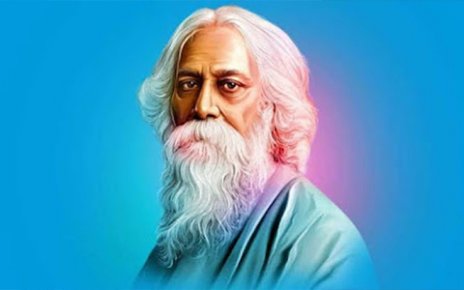United Kingdom (UK) officially left the European Union at 23:00 GMT on Friday, the 31st January 2020 ending 47 years of membership with the European Union. Britain joined what was the then European Economic Community on 1st January, 1973, at the third attempt. The historic moment of Britain’s leaving the European Union after 47 years, which happened at 11p.m. Britain’s local time on 31st January, was marked by both celebrations and anti-Brexit protests. Brexit means Britain’s exit from the European Union. Pro and anti-Brexit demonstrations and marches are being held across the country, as the UK flag was sadly taken down from European Union institutions in Brussels after 47 years. The European Union (EU) is a group of 28 countries in Europe, formed in the aftermath of World War II. Brussels, the capital of Belgium, is the headquarters of the European Union (EU). Thousands of enthusiastic Brexit supporters gathered outside Britain’s Parliament cheered as the hour struck. The Brexit supporters had been hoping for this moment since Britain’s 52-48 per cent vote in a referendum on 23rd June in 2016 to decide whether Britain would remain in European Union or walk away from the European Union after it had joined in 1973. Hundreds gathered in Parliament Square to celebrate Brexit, singing patriotic songs and cheering speeches from leading Brexiteers, including Nigel Farage. The Brexit Party leader Nigel Farage said: “Let us celebrate tonight as we have never done before. “This is the greatest moment in the modern history of our great nation.”
On the other side, many Britons are very sad and frustrated and mourned the loss of their European Union identity, and many marked the passing with tearful vigils. There was also sadness in Brussels as British flags were quietly removed from the EU bloc’s many buildings after 47 years. European Union leaders have said that the UK’s future relationship with European Union will never be as good as its membership with the European Union, as they warned against “splendid isolation of Great Britain”. Candlelit vigils were held in Scotland, which voted to stay in the European Union, while Brexiteers (who supported to leave the European Union) partied in London’s Parliament Square. Pro-EU demonstrators earlier staged a march in Whitehall to bid a “fond farewell” to the union – and anti-Brexit rallies and candlelit vigils were held in Scotland. In Northern Ireland, the campaign group Border Communities Against Brexit staged a series of protests in Armagh, near to the border with the Republic of Ireland. At 2300 GMT the same time, Scotland’s First Minister Nicola Sturgeon tweeted a picture of the EU flag, adding: “Scotland will return to the heart of Europe as an independent country – #LeaveALightOnForScotland” Speaking in Cardiff, Welsh First Minister Mark Drakeford said Wales, which voted to leave the EU, remained a “European nation”. Liberal Democrat acting leader Sir Ed Davey who is against Brexit vowed his pro-EU party would “never stop fighting” to have the “closest possible relationship” with Europe and try to prevent a “hard Brexit hurting British people”.
In a message released on social media an hour before the UK’s departure from the EU, the prime minister of Britain Boris Johnson who is a very staunch supporter of Brexit said: “For many people this is an astonishing moment of hope, a moment they thought would never come. And there are many of course who feel a sense of anxiety and loss. And then of course there is a third group – perhaps the biggest – who had started to worry that the whole political wrangle would never come to an end. I understand all those feelings and our job as the government – my job – is to bring this country together now and take us forward.” Conservative Prime Minister Boris Johnson has vowed to bring the country together and “take us forward”. Prime Minister Boris Johnson called Britain’s departure “a moment of real national renewal and change.”Most EU laws will continue to be in force – including the free movement of people for the next 11 months – until the end of December 2020, by which time the UK aims to have reached a permanent free trade agreement with the EU.
Britain’s opposition Labour Party leader Jeremy Corbyn said the country had to “move on” after Brexit and needed to “make sure we maintain good relations” with the EU and not “fall into the arms of a free trade deal with the United States”. Former Prime Minister of Britain David Cameron, who led the referendum campaign to remain in the EU during the referendum in 2016, said he believed the UK could “make a success of the choice that we made”. Former Prime Minister of Britain David Cameron led the campaign to stay in the EU but lost by the narrow margin of 52% to 48% to the Leave campaign, fronted by fellow radical Conservative Boris Johnson.
Britain’s exit from the European Union has also tremendous reaction in the European Union. European Commission President Ursula von der Leyen lamented that “as the sun rises tomorrow a new chapter for our union of 27 will start.” European Commission President Ursula von der Leyen paid tribute to UK citizens who had “contributed to the European Union and made it stronger”. European Commission President further added, “Upcoming trade negotiations would be “fair” but each side would fight for its interests.” European Council President Charles Michel warned: “The more the UK will diverge from the EU standards, the less access to the single market it will have.” French President Emmanuel Macron said about Brexit, “It is a historic alarm signal that must be heard in each of our countries.” French President said in a televised address, “It’s a sad day, let’s not hide it. But it is a day that must also lead us to do things differently.”
Source: BBC news and Brexit news
Former professor, writer and advisor to CBNA
Montreal, Canada, 1st February 2020




